AMD Radeon HD 7770 and 7750 Video Card Reviews
AMD Radeon HD 7750

Up next is the AMD Radeon HD 7750 1GB GDDR5 reference video card. This card is internally known as the Cape Verde Pro.

As you can see from the angle shot above the AMD Radeon HD 7750 is much smaller than the Radeon HD 7770 and since the board typically uses just 55 Watts of power and has a maximum power draw under 75 Watts it does not need any additional power connectors. Some companies will be bringing out passively cooled versions of this card, so it will be a hit for the silent PC fans.
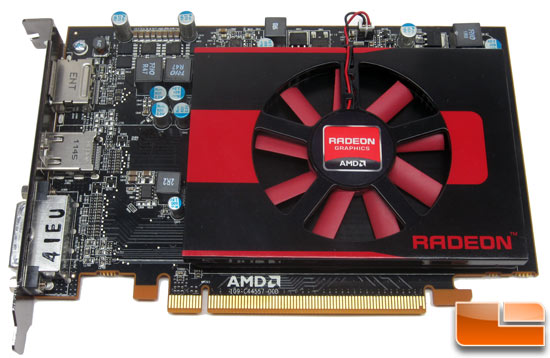
This video card PCB is black and measures 6.7-inches in length and is a single slot graphics card.
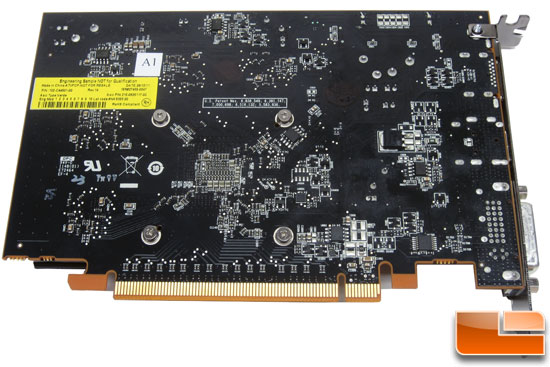
The back of the Radeon HD 7750 is pretty boring with no major components on the back.
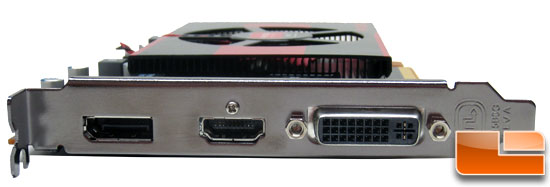
The AMD Radeon HD 7750 video outputs include DVI, HDMI and DisplayPort connectors.
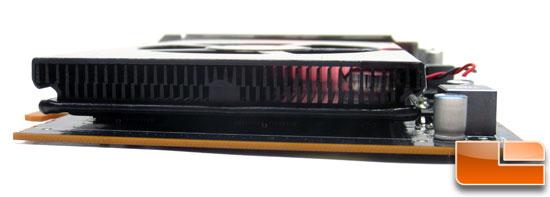
Looking down the end of the card you can see that it uses an extruded aluminum finned heat sink.
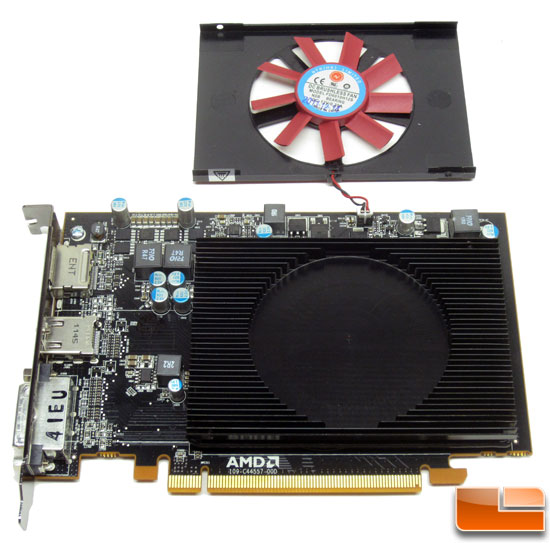
The top plastic fan shroud is held down with two screws and can be quickly removed for cleaning the dust and dirt out of the cooling fins. Notice that the fan is set down into the fin array.
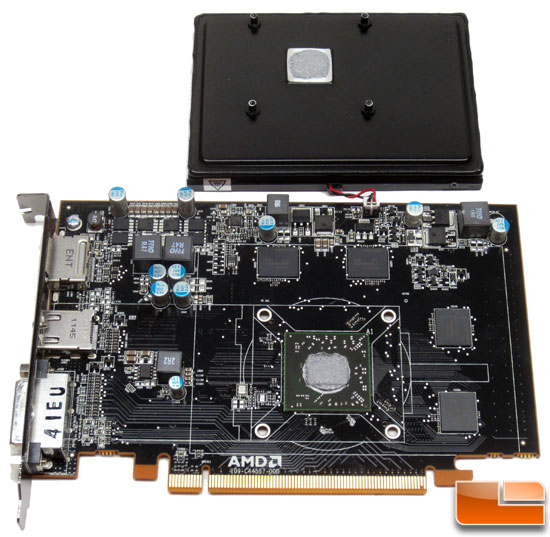
Removing the four screws that hold on the GPU cooler we can see the four memory chips and the Cape Verde core. There was a liberal amount of thermal compound applied to the GPU and it made good contact with the cooler. Notice that the memory chips were under the GPU cooler, but there were no thermal pads on them to dissipate the heat to the metal cooler that sat above them. Since there are just four memory IC’s and the card has 1024MB of GDDR5 memory we can easily figure out that each chip is Hynix chip 256MB.
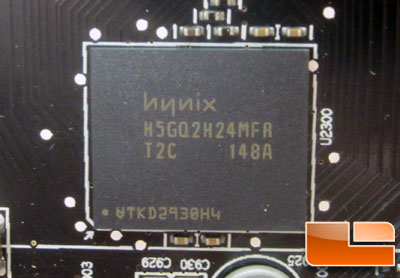
Taking a closer look at the Hynix GDDR5 memory IC’s we can see that they have part number H5GQ2H24MFR-T2C. These memory chips are speed rated for operation at 5.0Gbps, so 5000MHz effective. Since the AMD Radeon HD 7750 comes clocked with the memory at 4500MHz there should be some headroom left in the memory for overclocking.
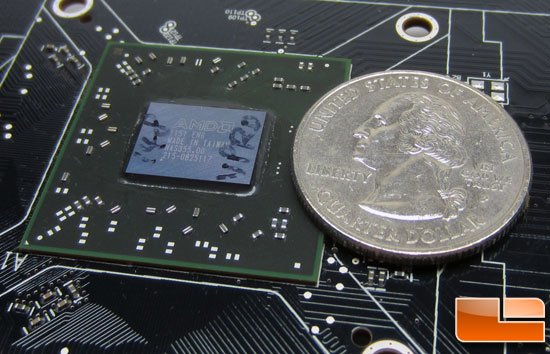
As you can see, the Cape Verde core isn’t very big compared to the US quarter dollar. Hard to believe that there are 1.5 billion transistors in that GPU core, but thanks to the 28nm manufacturing process it can be done!

Comments are closed.